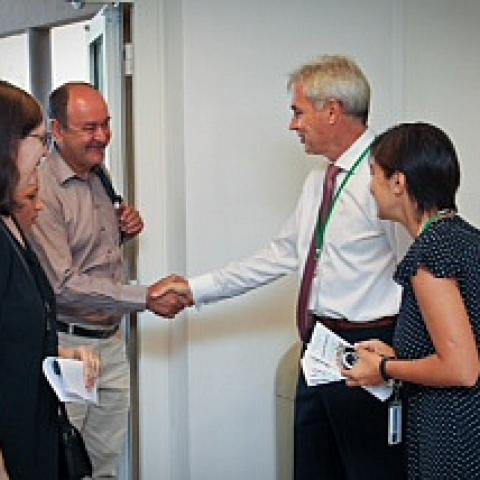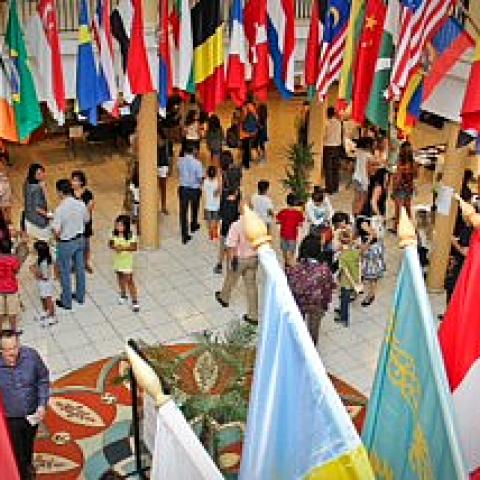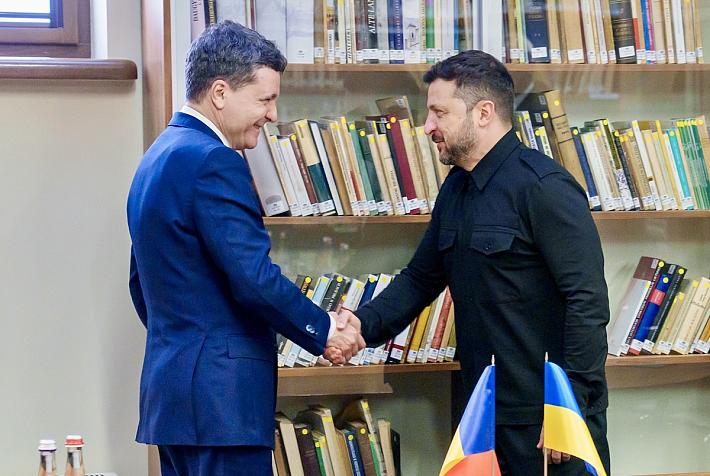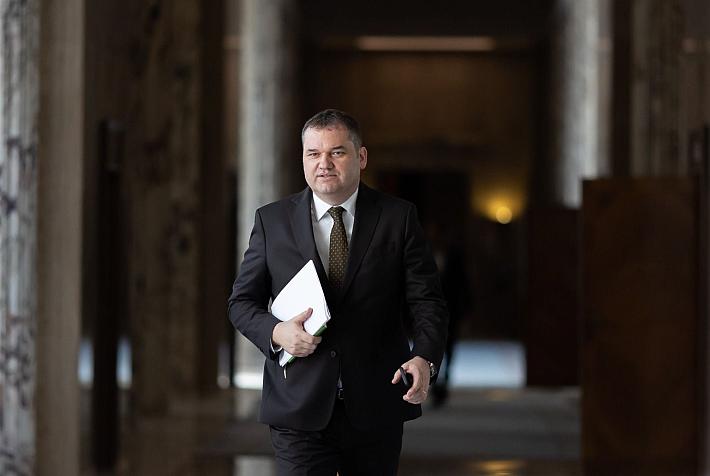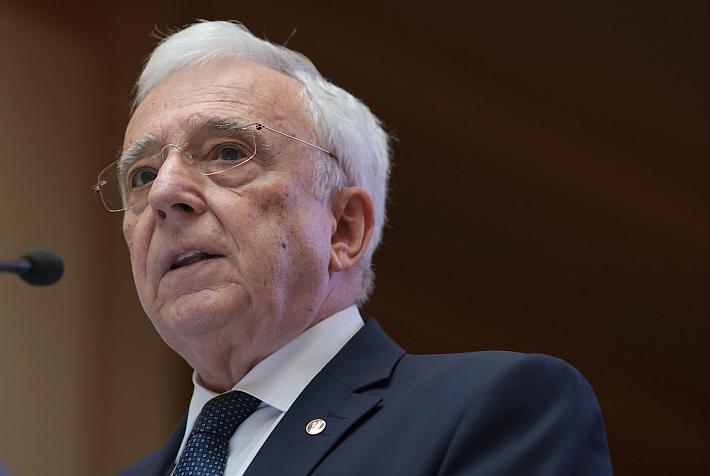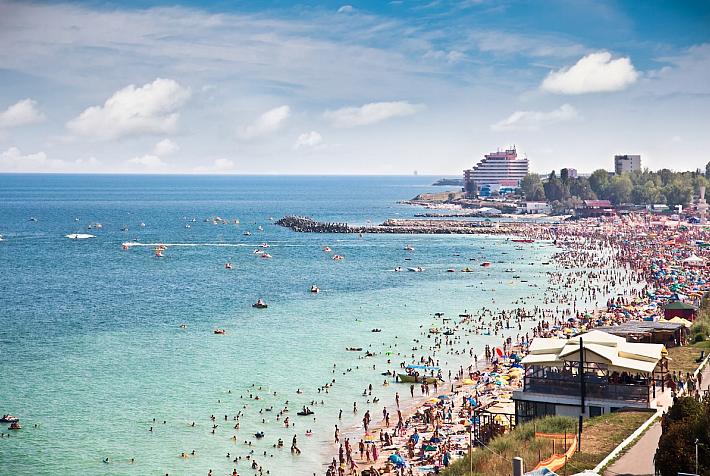(P) New school director for the American International School of Bucharest

The beginning of the 2014 – 2015 school year will bring notable changes to the American International School of Bucharest. Together with several new members of teaching and administrative bodies, Dr. Robert Brindley is joining our renowned fifty-two year old international institution as School Director, replacing Dr. David Ottaviano, who has been at AISB for the past six years.
A graduate of Exeter University, having started his profession in the mining industry as a geophysicist, Dr. Brindley, followed a moment’s inspiration whilst working on a kibbutz in Israel, decided to make a significant change in his carrier and become a teacher. He returned to England to undertake a postgraduate degree in Education and thence onto many international schools around the world (Italy, Australia, Venezuela, America and Uzbekistan). Over his years as an educator Dr. Brindley has gathered a wide variety of teaching and administrative experiences from which AISB is eager to benefit.
In his various roles as teacher, Principal, Headmaster or Director in the schools that he has served, Dr. Brindley is happy to have “developed and nurtured an understanding and tolerance of differing social attitudes, perceptions and expectations.” In his new position as Director of AISB, Dr. Brindley sees this move as a natural progression in his “desire to foster the development of an international, IB curriculum within a disciplined, academic environment.”
In a brief interview, Dr. Brindley shared his educational and leadership vision as well as his motivation to make his next career move to Bucharest, Romania.
A graduate of an extremely formal, highly structured, classic British education that he agrees offered valuable foundational skills on which to build a career. However, Dr. Brindley acknowledges that, while academically he was successful, this type of education did not challenge him, “in the sense of inspiring me to want to become a chemist or a physicist; in fact, quite the contrary, at university I chose a totally different subject. […] I respect the education I received because it was a structured, accelerated, driven program, but this curriculum left out too much of the creativity, inspirational and vocational aspects of a more liberal education. I was certain that my life in schools was definitely behind me until I read an educational book by A.S. Neill called ‘Summerhill’ and decided that perhaps I should go into education and help remedy this situation.”
Dr. Brindley describes his philosophy as a balance between subject discipline and rigor on the one hand and attending to the creative element of students on the other. “I value discipline in the classic sense, of being controlled in what you are trying to achieve, to gain mastery, in being motivated and resilient when trying to achieve one’s objectives.”
Dr. and Mrs. Brindley prefer to teach in international schools due to their inherent cultural complexities, amazingly diverse environments in which to live, and raise their sons, and to build on their love for travel. At the many schools in which Dr. Brindley has either worked or led, he has been challenged to “develop an education that creates intellectual demands upon the students, provides a rigorous curriculum that demands resilience and perseverance, and one that also affords opportunities in the fields of Athletics, the Fine Arts, and Design.”
“International schools are wonderful in creating a respectful culture,” Dr. Brindley says. “Our students are respectful; they are always multilingual and multitalented; they are comfortable on stage or in an orchestra; they can be creative on or off the sports field; and have an innate sense of worldliness that I did not have as a child. Students today are much more culturally and emotionally attuned, more internationally-minded, but it was always my feeling that there was not enough focus on the mastery of fundamental skills; through mastery comes competency. We must ensure that within our classrooms the students are respectful, that teaching methodologies demand resilience and perseverance, and that making mistakes is a natural and necessary part of the learning process.”
AISB felt very special to hear that it was Dr. Brindley’s only choice in the region and so when asked to explain why, he said: “I love the region of the Central and Eastern European Schools Association (CEESA); it recognizes the need for change and acknowledges the freedom necessary to change things; that is very important to me. I enjoy meeting the other directors in CEESA as it affords an opportunity to listen to what they think about evolving educational matters. I also wanted to find a school that has an established record and reputation, a place where I can really focus on student academics and programs to ensure that the students are getting what they need.”
At AISB, Dr. Brindley feels he will have “an opportunity to mentor and guide the institution further along its path to excellence. It helps that AISB is financially sound and the Board is very supportive.”
Robert and Jann Brindley are looking forward to living in Romania; “it is exciting; it is a different part of the world, with a different cultural perspective; another language to learn; but really there are two things that brought us here, the country (that is personal), and the school which I think is uniquely placed to become an even better educational institution.”
Five express questions were asked of Dr. Robert Brindley:
1. A great leader is one who … understands the vision and knows how to get there;
2. A good education means … enriching the child’s potential;
3. An inspiring teacher is one who … makes the time fly;
4. The best teaching experience you have ever had was when … you understand that a child who struggled has finally understood;
5. One word in Romanian you learned … Da!
(P- this article is an advertorial)






